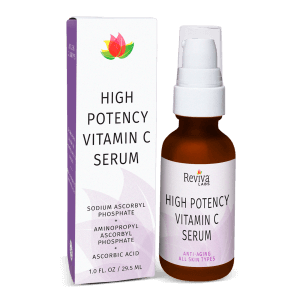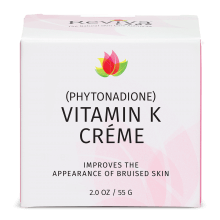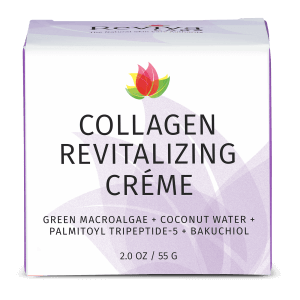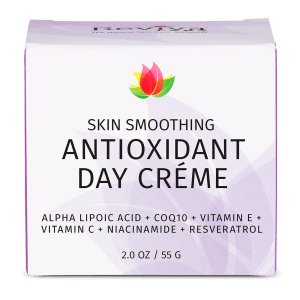Ingredients, Reviva Labs, Skin Care
What is Vitamin K Good for, Especially in Skincare
Vitamin K is an essential nutrient that plays several crucial roles in maintaining our health. This article explores the benefits of vitamin K, highlighting its importance in various bodily functions. We’ll discuss how this vitamin impacts bone health, blood clotting, and heart health, and how it may contribute to skin health.
Understanding Vitamin K
Vitamin K is a fat-soluble vitamin, which means it is stored in the body’s fatty tissue. It exists in two main forms: vitamin K1 (phylloquinone) and vitamin K2 (menaquinone). Vitamin K1 is primarily found in green leafy vegetables such as spinach, kale, and broccoli. Vitamin K2, on the other hand, is present in animal-based and fermented foods, including cheese, eggs, and natto, a type of fermented soybean.
The Role of Vitamin K in Blood Clotting
One of the most well-known functions of vitamin K is its role in blood clotting. This process is vital for preventing excessive bleeding when injuries occur. Vitamin K is necessary for synthesizing certain proteins required for blood clot formation, including prothrombin, a protein and clotting factor that is directly involved in the blood clotting process. Without sufficient vitamin K, the body cannot produce enough of these proteins, leading to increased bleeding and difficulty healing wounds.
Supporting Bone Health
Vitamin K is also essential for maintaining strong and healthy bones. It helps regulate calcium in the body and facilitates the binding of calcium to the bone matrix, which strengthens bones. Research has shown that people with higher vitamin K levels have a lower risk of bone fractures. According to a study published in the American Journal of Clinical Nutrition, postmenopausal women who consumed adequate amounts of vitamin K were less likely to experience hip fractures compared to those with lower intakes. This highlights the importance of vitamin K in bone health and its potential role in preventing osteoporosis.
Heart Health Benefits
Another significant benefit of vitamin K is its positive impact on heart health. Vitamin K helps prevent the calcification of arteries, a condition where calcium deposits build up in the walls of the arteries, leading to stiffening and narrowing. This process is a risk factor for cardiovascular diseases, including heart attacks and strokes. By aiding in the regulation of calcium in the blood vessels, vitamin K helps maintain arterial flexibility and promotes better cardiovascular health. Studies have suggested that adequate vitamin K intake can reduce the risk of arterial calcification and improve overall heart health.
Vitamin K and Skin Health
While vitamin K is not as widely known for its role in skin health, it can still have beneficial effects. Vitamin K may help reduce dark circles under the eyes and bruising by aiding in the body’s healing processes. Its role in blood clotting ensures that the skin can heal properly and quickly from minor injuries. Some skincare products include vitamin K to help with skin discoloration and improve the appearance of scars and stretch marks. Though more research is needed to fully understand the extent of vitamin K’s benefits for the skin, its inclusion in skincare routines is gaining popularity.
Dietary Sources of Vitamin K
Ensuring adequate vitamin K intake through diet is essential for reaping its benefits. Green leafy vegetables are excellent sources of vitamin K1. Incorporating foods like spinach, kale, collard greens, and broccoli into meals can significantly boost vitamin K1 intake. Vitamin K2 is found in animal-based and fermented foods, such as cheese, egg yolks, and natto. Fermented foods, in particular, are beneficial as they provide high levels of vitamin K2, which is more bioavailable and easier for the body to absorb.
Vitamin K Deficiency
Vitamin K deficiency is relatively rare in adults but can occur under certain conditions. Symptoms of deficiency include easy bruising, excessive bleeding, and, in severe cases, bleeding in the gastrointestinal tract or brain. Certain groups of people are at higher risk of deficiency, including those with conditions that impair fat absorption, such as celiac disease or Crohn’s disease. Additionally, prolonged use of antibiotics can reduce vitamin K levels in the body by disrupting gut bacteria, which produce a form of vitamin K2. Newborns are also at risk of vitamin K deficiency and are often given a vitamin K injection at birth to prevent bleeding problems.
Supplementing Vitamin K
For individuals who struggle to obtain sufficient vitamin K from their diet, supplements can be an effective way to ensure adequate intake. Vitamin K supplements are available in both K1 and K2 forms, with K2 being more effective in certain aspects of health, such as bone and heart health. However, it is always best to consult with a healthcare provider before starting any supplement regimen to determine the appropriate dosage and form based on individual health needs and conditions.
Conclusion
Vitamin K is a vital nutrient that supports several key bodily functions, from blood clotting and bone health to heart health and potentially skin health. Ensuring an adequate intake of vitamin K through diet or supplements can contribute to overall well-being and prevent various health issues associated with deficiency. By incorporating vitamin K-rich foods into meals and being mindful of factors that can impair its absorption, individuals can maintain optimal levels of this essential vitamin and enjoy its numerous health benefits.










